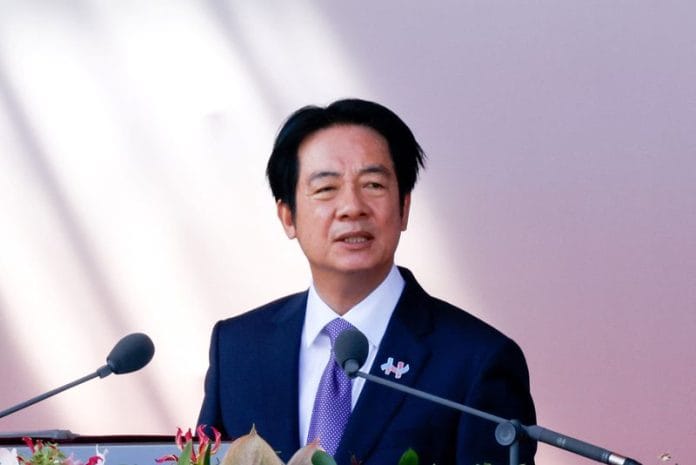TAIPEI (Reuters) -Taiwan will introduce a $40 billion supplementary defence budget to underscore its determination to defend itself, with “significant” new U.S. arms purchases planned, President Lai Ching-te said in a Washington Post op-ed essay.
The move comes as China, which views democratically governed Taiwan as its own territory, has ramped up military and political pressure over the past five years to assert its claims, which Taipei strongly rejects.
But Taiwan also faces calls from Washington to spend more on its own defence, mirroring pressure from the United States on Europe.
In August, Lai said he hoped defence spending would reach 5% of gross domestic product by 2030.
“This landmark package will not only fund significant new arms acquisitions from the United States, but also vastly enhance Taiwan’s asymmetrical capabilities,” he wrote in the Washington Post piece, which was published on Tuesday U.S. time.
“In doing so, we aim to bolster deterrence by inserting greater costs and uncertainties into Beijing’s decision-making on the use of force.”
Lai has previously announced he would propose extra defence spending, but had not given details.
For 2026, the government is proposing defence spending would reach T$949.5 billion ($30.25 billion). At 3.32% of GDP, the figure crosses a threshold of 3% for the first time since 2009, government figures showed.
“While we will continue to pursue opportunities for cross-strait dialogue, with the understanding that our democracy and freedom remain nonnegotiable, we remain grounded by more than wishful thinking, as some have suggested,” Lai wrote.
“Both presidents Trump and Reagan have understood the significance of peace through strength. Standing on the front lines of democracy, this is a lesson we live by each and every day.”
The United States is bound by law to provide Taiwan with the means to defend itself, despite the lack of formal diplomatic ties.
($1 = 31.3880 Taiwan dollars)
(Reporting by Ben Blanchard; Editing by Leslie Adler and Stephen Coates)
Disclaimer: This report is auto generated from the Reuters news service. ThePrint holds no responsibility for its content.






